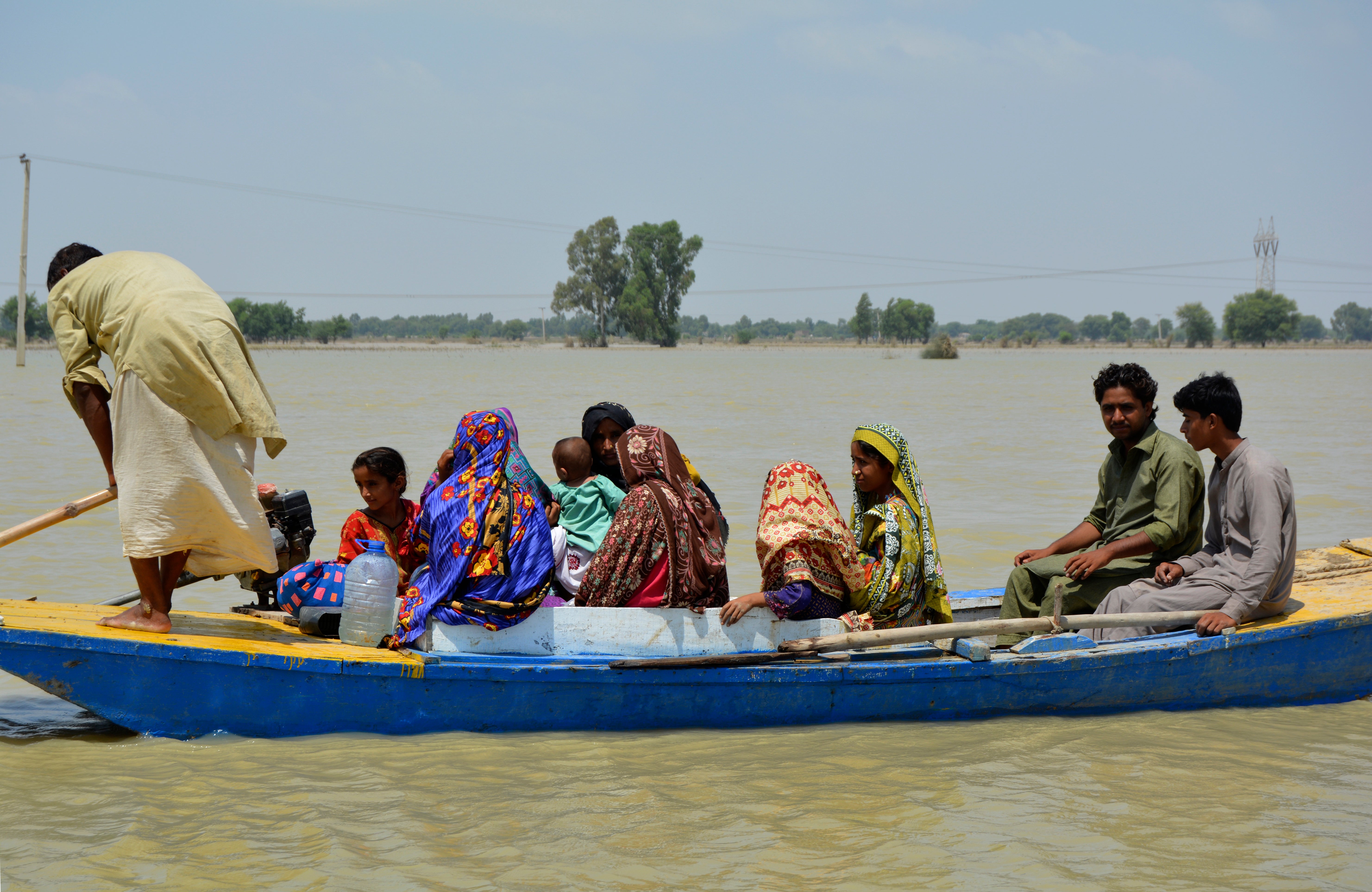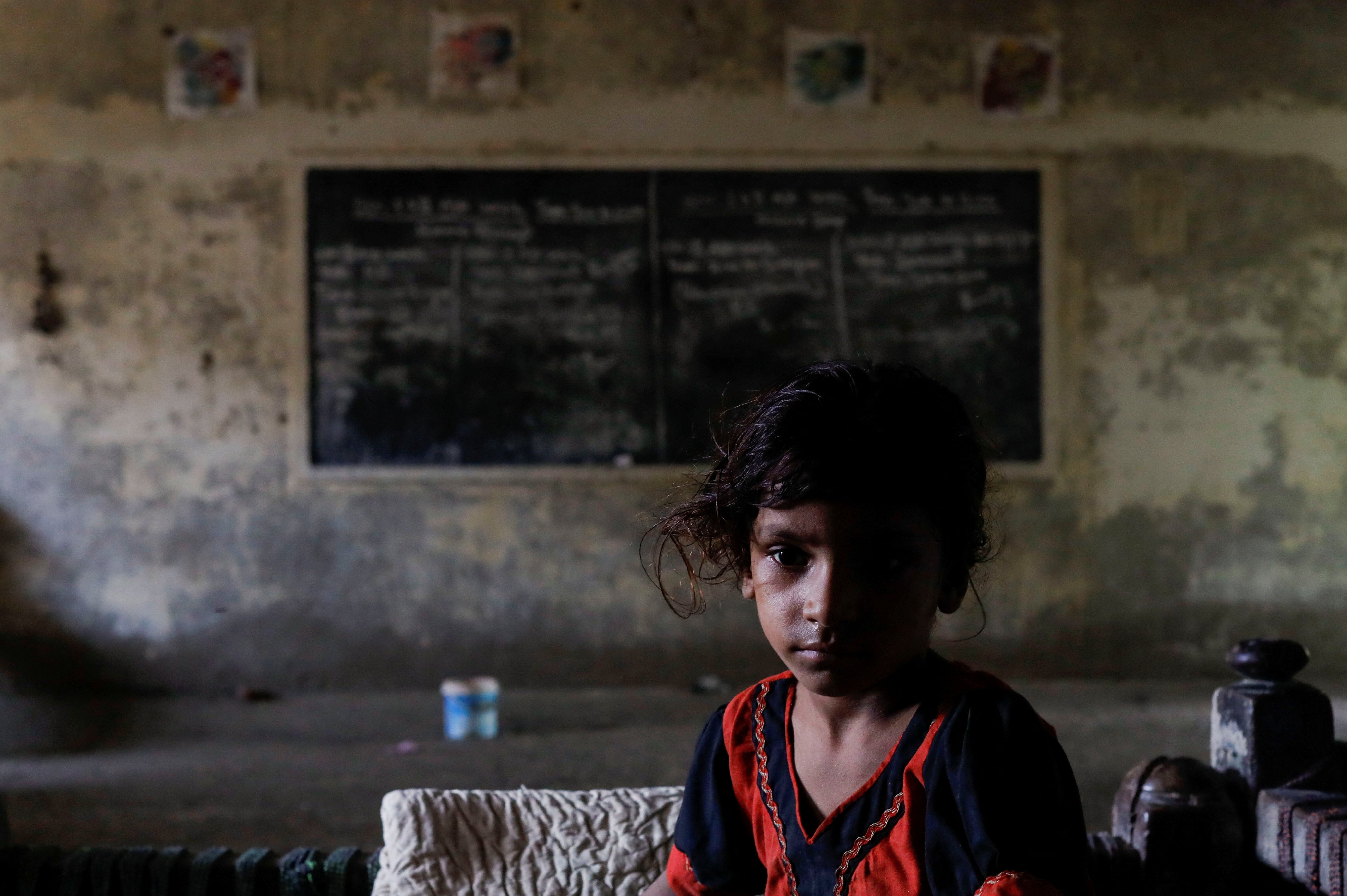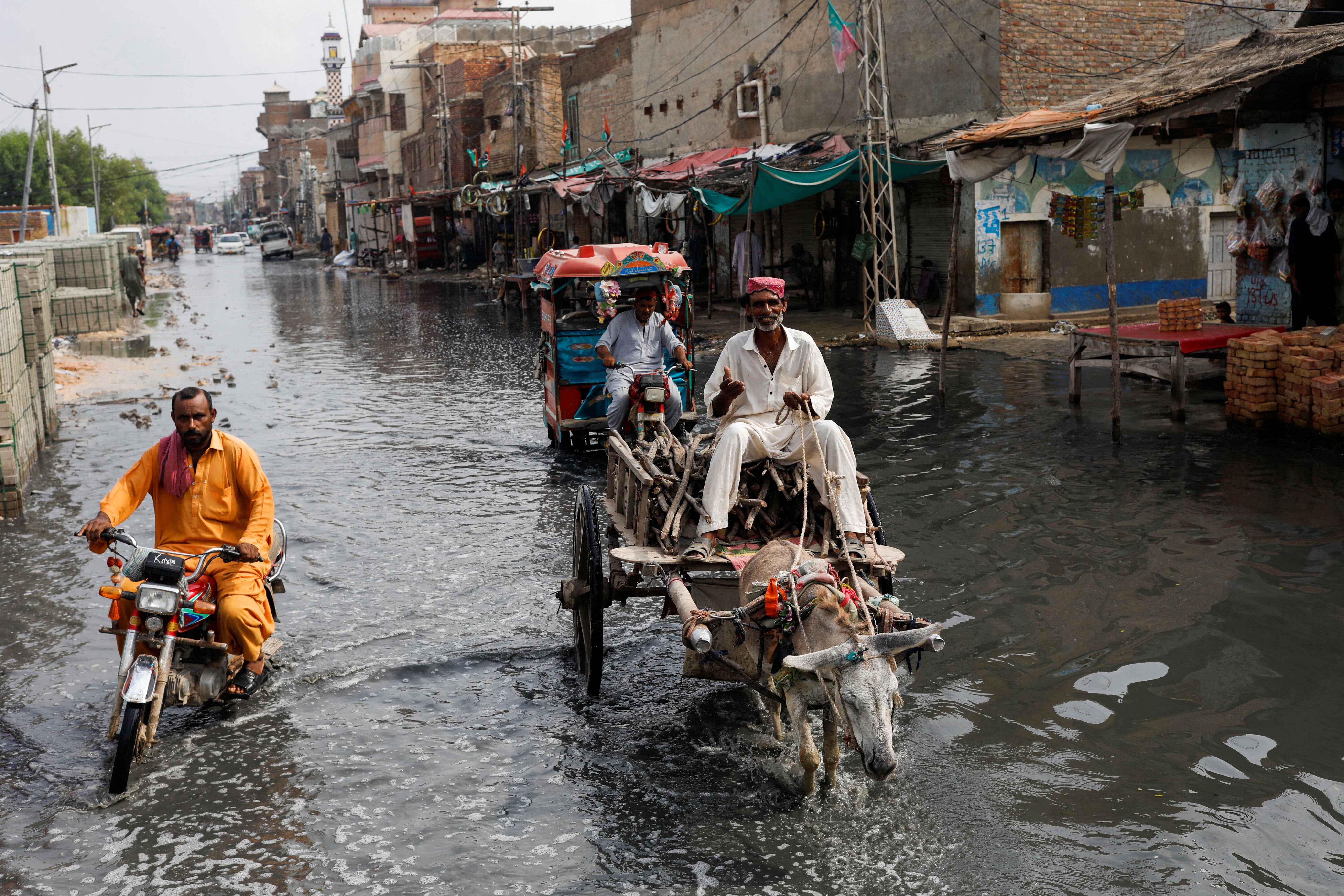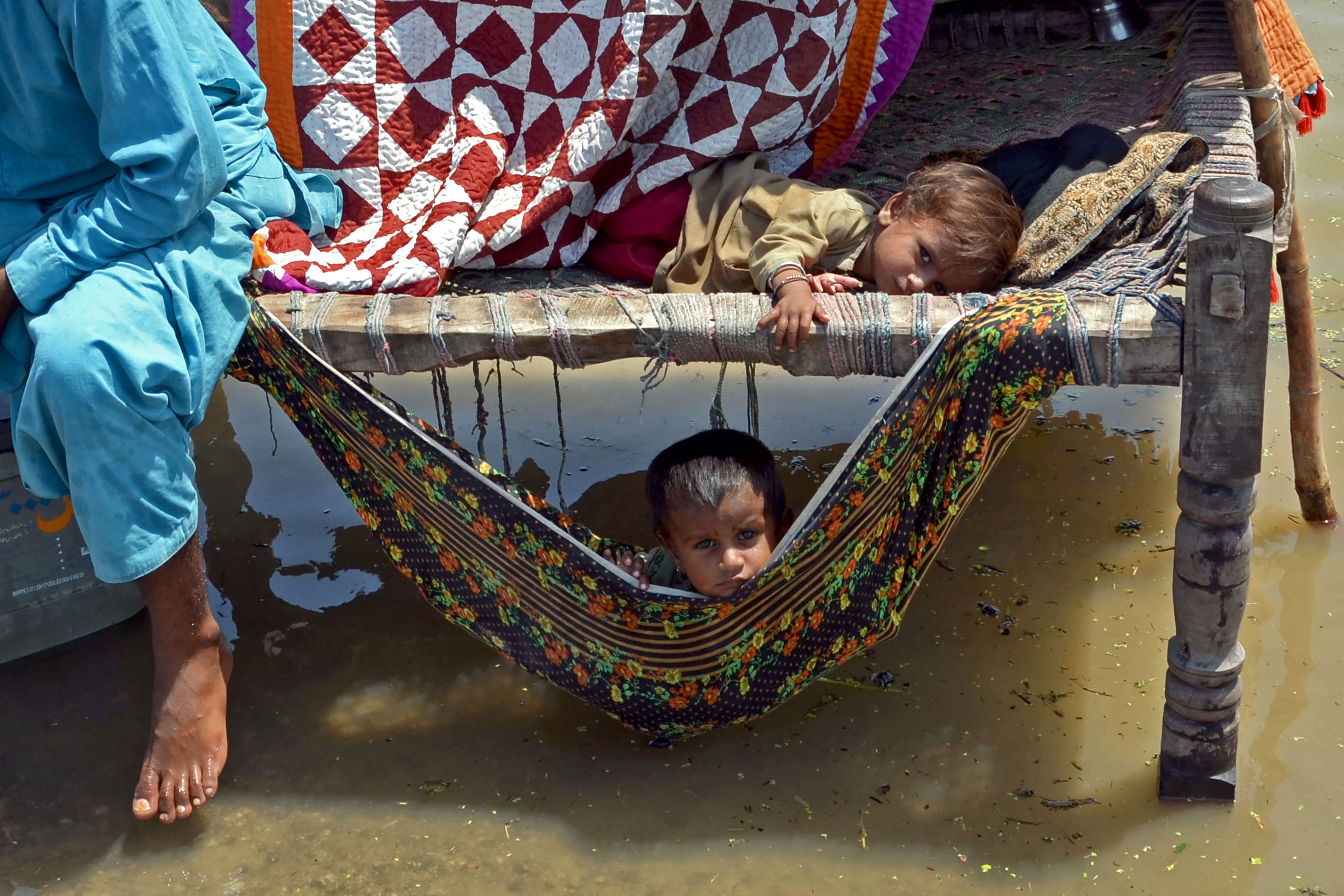‘You are killing us’: Flooded Pakistan faces climate crisis it did not create
Countries like Pakistan are suffering in part thanks to countries in the global north not pulling their weight over climate action, writes Saphora Smith


Pakistan contributes comparatively little to global greenhouse gas emissions and yet is on the frontline of the worsening climate crisis.
That has been the message of Pakistan’s climate minister in recent days as around a third of her country stood underwater after flooding that she described as a “climate dystopia” on Pakistan’s “doorstep.”
“We’re negligible carbon emittors [sic] but facing the brunt of richer countries GHG emissions,” Senator Sherry Rehman tweeted, referring to greenhouse gas emissions.

Climate campaigners and environmental activists agree that the floods in Pakistan, which have killed more than 1,000 people and impacted 33 million , are the latest example of an uncomfortable truth. That is that generally developing countries in the global south are being disproportionately impacted by worldwide heating despite having contributed to it the least. Pakistan has received nearly 190 per cent more rain than the 30-year average in the three months into August, totalling 390.7 mm (15.38 inches). Sindh province in the south, with a population of 50 million, has been hardest hit, getting 466 per cent more rain than the 30-year average.
“Big polluters, big countries, big nations, big economies: Stop it, you are killing us,” Ahmad Rafay Alam, an environmental lawyer told The Independent from Lahore. “You’ve caused the pollution, we’re the ones dying by it.”
Mr Alam called out the excesses of consumerism that include what he described as the “ludicrousness” of some taking minutes-long flights on private jets, saying it was “costing lives” in the global south.
“It’s that level of consumerism, exploitation of natural resources without any accountability that’s causing our suffering,” he said.
Although it will take a specific attribution study to assess the extent to which climate breakdown influenced the flash flooding in Pakistan, scientists have said the extreme weather has the hallmarks of a crisis made worse by global heating.
Pakistan has contributed less than one per cent of global carbon dioxide emissions that are heating up our planet, according to Our World In Data. And yet the United Nations Secretary General Antonio Guterres said this week that South Asia was one of the world’s climate crisis “hotspots” where people are 15 times more likely to die from climate impacts.
Mr Alam said that the poverty felt in areas of the country made it particularly vulnerable. “If I live out in a village with a mud hut, rain means the difference between my village being connected to a road and a hospital and a school for my children,” he said. “If you survived the flood.”
While Mr Alam said there is an argument about greater accountability of Pakistan’s government, he said the global north had also sucked resources out of the global south making the global north richer at the expense of the climate and developing nations.
Now developing countries are also having to pay for the damages wrought by the climate crisis.
An initial estimate by the Pakistani government calculated that the floods could cost the country at least $10 billion. The $160 million called for by the United Nations from the international community is only going to go so far.

That is why there have been growing calls among activists and vulnerable nations for more attention to be given to what is known as “loss and damage” - or the destruction wrought - from climate breakdown as global temperatures rise.
The Glasgow Climate Pact agreed to last year at Cop 26 failed to establish a new damages fund as advocated for by vulnerable nations after opposition from the United States and the European Union among other wealthy nations.
Caroline Lucas, the green MP for Brighton Pavillion, told The Independent that what was happening to Pakistan was “a global injustice of enormous proportions.”
“Pakistan is being forced to bear the apocalyptic impacts of a climate emergency caused not by its own people, but primarily by major emitters in the Global North continuing to burn climate-wrecking fossil fuels at will,” she said. “No country can handle a crisis of this scale on its own – the economic costs of loss and damage could be up to $580 billion a year by 2030 – yet rich countries are utterly failing to pull their weight.”
“At COP27 we must see the creation of a dedicated loss and damage finance facility, to help Pakistan and other climate vulnerable countries cope with the impacts of a planet in crisis,” she added.

Amiera Sawas, director of Programmes and Research at Climate Outreach in London, said a very small percentage of people in countries like the UK that are historically responsible for driving the climate crisis have no idea what “loss and damage” is.
“We need to engage the public in these countries about our historical roles in climate change and how there is an opportunity to support countries on the frontlines of the crisis (that they didn’t cause),” she told The Independent. “Maybe if people knew more about it and felt engaged, there would be more scope for them to put a political mandate on the leaders that are stalling the process.”





Join our commenting forum
Join thought-provoking conversations, follow other Independent readers and see their replies
1Comments